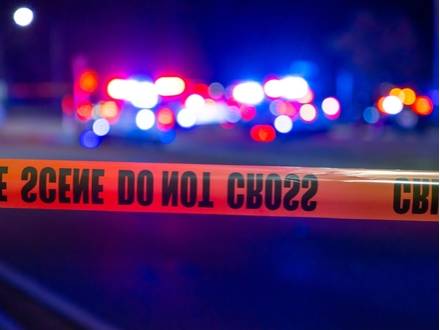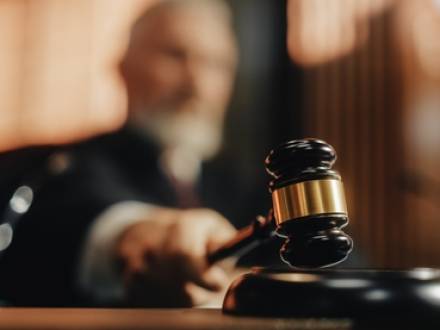Recent Blog Posts
Will Juvenile Offenses Stay on My Record Forever?
 Inevitably, we all make mistakes in our youth. If you had a criminal history as a teenager, you might have serious concerns about your future, asking questions like, Will an employer hold my record against me? Will I have a permanent criminal record? These questions might haunt you if you are looking to start fresh and change from the person you used to be. Connecticut has clear laws about juvenile crimes, and depending on your circumstances, it may or may not follow you into adulthood. If you are facing criminal charges as a juvenile offender, or are looking to clear your name after the fact, a Connecticut criminal defense lawyer can provide skilled representation.
Inevitably, we all make mistakes in our youth. If you had a criminal history as a teenager, you might have serious concerns about your future, asking questions like, Will an employer hold my record against me? Will I have a permanent criminal record? These questions might haunt you if you are looking to start fresh and change from the person you used to be. Connecticut has clear laws about juvenile crimes, and depending on your circumstances, it may or may not follow you into adulthood. If you are facing criminal charges as a juvenile offender, or are looking to clear your name after the fact, a Connecticut criminal defense lawyer can provide skilled representation.
Connecticut’s Ruling About Crimes Committed as a Minor
Connecticut separates non-adult criminals into two separate categories: "juvenile offenders" and "youthful offenders." The former category consists of anyone younger than 18 who commits a criminal offense not serious enough to be taken to adult courts. The latter category consists of those age 17 or younger who are tried as adults for a criminal offense for the first time without any prior history of felony convictions.
Drug Possession and Sale Charges are Harsh in Connecticut
 In Connecticut, the law cracks down hard on the possession and sale of hard drugs, with the possibility of tens of thousands of dollars in fines and years behind bars. The charges can vary wildly depending on what you were selling, where you were selling, and how much you were carrying. If you have been accused of drug charges in Connecticut, the skilled criminal defense lawyer at Law Offices of Daniel P. Weiner can represent you in court and make sure your best interests are protected.
In Connecticut, the law cracks down hard on the possession and sale of hard drugs, with the possibility of tens of thousands of dollars in fines and years behind bars. The charges can vary wildly depending on what you were selling, where you were selling, and how much you were carrying. If you have been accused of drug charges in Connecticut, the skilled criminal defense lawyer at Law Offices of Daniel P. Weiner can represent you in court and make sure your best interests are protected.
Unlawful Marijuana Possession and Sale in Connecticut
Marijuana is legal for recreational usage in Connecticut. However, there are still laws that could land you into hot water if you are found violating them. A person can only have up to five ounces of marijuana at his or her home. The first offense is only a civil infraction, but a second violation is charged as a misdemeanor that will leave you with a criminal record. Additionally, carrying more than one and a half ounces in public is a misdemeanor with the possibility of a year in jail and a fine no greater than $2,000.
Can I Claim Self-Defense in Violent Crime Charges?
 It is an unfortunate fact of life that violence is sometimes unavoidable. In a worst-case scenario, you might have no choice but to use force to protect yourself, the people around you, or your property. If you have been charged with a violent crime in Connecticut, the experienced criminal defense attorney at Law Offices of Daniel P. Weiner can advocate on your behalf and present a sympathetic case to a judge.
It is an unfortunate fact of life that violence is sometimes unavoidable. In a worst-case scenario, you might have no choice but to use force to protect yourself, the people around you, or your property. If you have been charged with a violent crime in Connecticut, the experienced criminal defense attorney at Law Offices of Daniel P. Weiner can advocate on your behalf and present a sympathetic case to a judge.
Consequences of Violent Crimes in Connecticut
In Connecticut, charges of violent crimes are strictly prosecuted. Keeping this in mind, you should seek out an experienced legal professional to represent you if you are charged with murder, assault with a deadly weapon, or assault resulting in serious injury. A conviction on any one of these charges will brand you with a criminal record, alongside the potential for serious prison time and high fines. The penalties are as follows:
How a Lawyer Can Help with a Short Sale
 In times of financial hardship, you may be forced to make a hard call about your mortgage and real estate prospects. If you are facing the risk of foreclosure, a short sale may be the only option to recoup your losses and walk away with some of your credit intact. However, negotiating with the mortgage lender by yourself can leave you at a disadvantage if you are unsure of your rights. A real estate lawyer can give you a voice in a short sale, ensuring that you are financially equipped to transition into another home.
In times of financial hardship, you may be forced to make a hard call about your mortgage and real estate prospects. If you are facing the risk of foreclosure, a short sale may be the only option to recoup your losses and walk away with some of your credit intact. However, negotiating with the mortgage lender by yourself can leave you at a disadvantage if you are unsure of your rights. A real estate lawyer can give you a voice in a short sale, ensuring that you are financially equipped to transition into another home.
Understanding Foreclosure in Connecticut
If your financial situation can no longer accommodate a mortgage, you may be faced with foreclosure. In Connecticut, there are two distinct types of foreclosure that can be ordered by a judge: strict foreclosure and foreclosure by sale. A strict foreclosure gives you a hard deadline to pay off any debts on the mortgage, referred to as Law Day. If you fail to pay off the debt by Law Day, ownership of the property is turned over to the lender.
Possible Defense Strategies When Faced with Hate Crime Charges
 Hate crime charges are serious, as they not only threaten severe legal consequences in Connecticut but also carry a significant social stigma. From a criminal defense perspective, constructing a robust defense is vital for protecting the rights and future of the accused. Here is how your defense lawyer will approach your case.
Hate crime charges are serious, as they not only threaten severe legal consequences in Connecticut but also carry a significant social stigma. From a criminal defense perspective, constructing a robust defense is vital for protecting the rights and future of the accused. Here is how your defense lawyer will approach your case.
Understanding Hate Crime Charges
A hate crime adds an additional layer of complexity to standard criminal charges, requiring proof of bias motivation. The prosecution must demonstrate that the accused committed the crime due to prejudice against the victim’s race, religion, ethnicity, gender, sexual orientation, or other protected characteristics. Defense attorneys work to dismantle this narrative by challenging the nature and strength of the evidence presented.
Should I Take a Plea Deal or Go to Trial?
 Deciding whether to pursue a plea deal or take your criminal case to trial is a significant decision that could impact your future. When faced with a decision of this magnitude, consulting with an experienced lawyer is one of the most important things you can do. Each option has a different outcome, which is why it is important to be as informed as possible when making your decision. Here are some aspects to consider.
Deciding whether to pursue a plea deal or take your criminal case to trial is a significant decision that could impact your future. When faced with a decision of this magnitude, consulting with an experienced lawyer is one of the most important things you can do. Each option has a different outcome, which is why it is important to be as informed as possible when making your decision. Here are some aspects to consider.
Understanding What Plea Deals Are All About
Before opting for a plea deal, it is essential to understand what it entails:
-
Reduced charges – A plea deal may result in fewer charges than you initially faced, leading to a lighter jail sentence.
-
Certainty of outcome—By accepting a plea deal, you know the exact consequences, reducing the uncertainty a trial could bring.
Are DUI Laws Different for CDL Drivers in Connecticut?
 When it comes to driving under the influence (DUI) laws, commercial driver's license (CDL) holders in Connecticut face stricter regulations than regular drivers. If you are a CDL driver facing DUI charges, it is crucial that you contact an experienced lawyer who can help navigate the complexities of the law. Your attorney will also help you protect your livelihood, as CDL holders rely on operating a vehicle to make a living, which can make the impact of DUI charges even more severe for them.
When it comes to driving under the influence (DUI) laws, commercial driver's license (CDL) holders in Connecticut face stricter regulations than regular drivers. If you are a CDL driver facing DUI charges, it is crucial that you contact an experienced lawyer who can help navigate the complexities of the law. Your attorney will also help you protect your livelihood, as CDL holders rely on operating a vehicle to make a living, which can make the impact of DUI charges even more severe for them.
Stricter Blood Alcohol Concentration (BAC) Limits
One of the most significant differences in DUI laws for CDL drivers in Connecticut is the allowable blood alcohol concentration limit. While standard drivers face a BAC limit of 0.08 percent, CDL drivers are subject to a much lower limit of 0.04 percent.
Why Should a Lawyer Attend Real Estate Closings?
 When navigating the complexities of real estate transactions in Connecticut, the role of a lawyer becomes essential for a few different reasons. Engaging a qualified attorney not only helps to facilitate smooth proceedings but also ensures your interests are fiercely protected during real estate closings. Here is why having a lawyer present is crucial for all parties involved.
When navigating the complexities of real estate transactions in Connecticut, the role of a lawyer becomes essential for a few different reasons. Engaging a qualified attorney not only helps to facilitate smooth proceedings but also ensures your interests are fiercely protected during real estate closings. Here is why having a lawyer present is crucial for all parties involved.
Real Estate Lawyers Understand the Closing Process
In Connecticut, the closing process involves multiple steps that can be overwhelming for buyers and sellers. A lawyer provides clarity on several key concepts:
-
Reviewing documents – Lawyers meticulously examine the closing documents, including the deed, settlement statement, and title insurance policy, to ensure all items are accurate.
What Constitutes Money Laundering in Connecticut?
 If you are facing money laundering charges in Connecticut, it is important to understand what this serious crime entails. Money laundering is not just about handling dirty money; it is a complicated process that helps criminals hide the origins of their illegal earnings. For anyone facing a white collar crime like money laundering, having a skilled attorney by your side is of the highest importance.
If you are facing money laundering charges in Connecticut, it is important to understand what this serious crime entails. Money laundering is not just about handling dirty money; it is a complicated process that helps criminals hide the origins of their illegal earnings. For anyone facing a white collar crime like money laundering, having a skilled attorney by your side is of the highest importance.
What Exactly is Money Laundering?
Money laundering is the process of making illegally obtained funds appear legitimate. Typically, people who engage in money laundering hide the origins of their money – often derived from drug trafficking, embezzlement, or other criminal activities – through a series of transactions designed to obscure their illegal origins. In Connecticut, money laundering is defined under state law and can lead to severe penalties, including fines and imprisonment.
Is Jail Possible for a First Offense Domestic Violence Charge?
 If you find yourself facing a domestic violence charge in Connecticut, enlisting the help of a seasoned lawyer is vitally important. Many people worry about the possibility of jail time, especially if it is their first offense. However, Connecticut offers certain options that might pave the way for alternatives to incarceration, which can significantly reduce the long-term impacts on your life.
If you find yourself facing a domestic violence charge in Connecticut, enlisting the help of a seasoned lawyer is vitally important. Many people worry about the possibility of jail time, especially if it is their first offense. However, Connecticut offers certain options that might pave the way for alternatives to incarceration, which can significantly reduce the long-term impacts on your life.
What to Know About Domestic Violence in Connecticut
In Connecticut, domestic violence offenses encompass a range of crimes, including assault, threats, and disorderly conduct, when these acts are committed against a family or household member. For first-time offenders, the legal repercussions can seem daunting. While jail time is possible, the circumstances surrounding your case could lead to different outcomes. Courts often recognize that not all offenses warrant severe punishment, especially for individuals with no prior criminal history.







